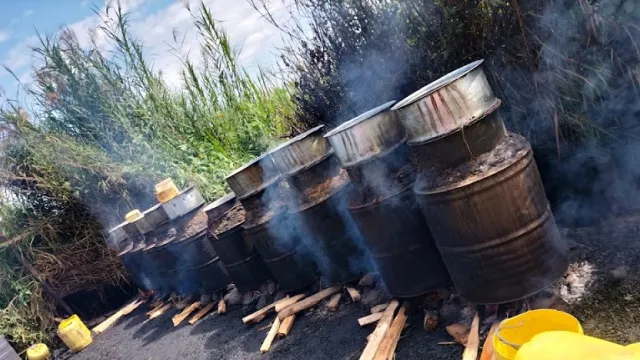Advance excise duty payment plan will choke alcohol makers, drive up illicits

Advance excise duty payment plan will choke alcohol makers, drive up illicits
Alcohol manufacturers in Kenya have protested President William Ruto's administration's decision to require them to pay excise duty in advance, arguing that doing so will not only strain their businesses but also drive up the prevalence of illicit liquor.
Alcoholic Beverages Association of Kenya (ABAK), the industry lobby, claimed that forcing alcohol producers to pay excise duty within 24 hours after removing their products from the stockroom was a policy declaration that would punish innocent players due to failures in tackling illicit alcohol in Kenya.
They claimed that although the plan was intended to assist stop the trafficking of illicit alcohol, it is more likely to end up boosting it because it was not taken through public participation and was only included in the Finance Bill by the National Assembly's Finance Committee.
The implementation of the provision through the Finance Bill, according to ABAK Chairman Eric Githua, is not essential because the current model, in which producers return the tax following the reconciliation of sales, is effective.
“Our members have remained compliant in remitting excise duty, playing their part in building Kenya’s economy even in the current tough economic times. Implementing the advance payment effectively is a counterproductive, unperceptive move that will hurt legal manufacturers debilitatingly and benefit illicit alcohol dealers who do not pay taxes, anyway,” said Mr Githua.
Read also: Too drunk to dig graves
Excise duty is a consumption tax that needs to be charged at the point of consumption. Before being consumed, the product in the alcohol industry travels along a value chain that includes distributors and retailers. The move will negate the entire objective of levying excise tax as manufacturers will be incurring a cost that should be incurred by consumers, said ABAK.
The proposal was picked up by the Finance Committee after a submission by the Illicit Alcohol Prevention Taskforce.
“You do not stop errant alcoholic beverage dealers by making it harder for legal manufacturers. The government should be doing all it can to unearth the source and movement of ethanol and the eventual making of this harmful alcohol,” said Mr Githua.
In order to maintain compliance by alcoholic makers, manufacturers will be obliged to assess the contracts they have with their distribution networks, including outlets like pubs and restaurants, and require upfront payment on all orders, triggering strain on cash flows.



